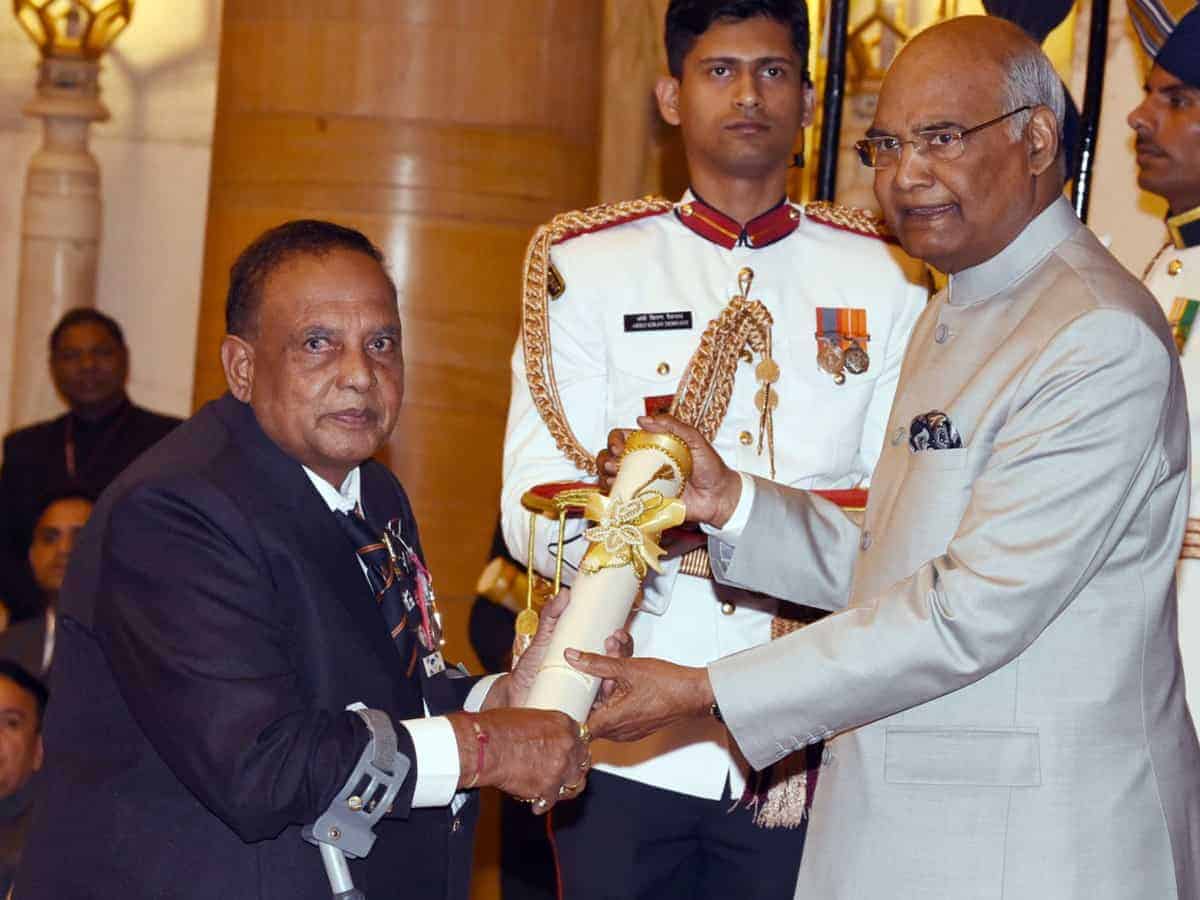Hyderabad: At the onset of 1965 Indo-Pak war, a young man, as fate would have it, was present in the Sialkot Sector in Kashmir. One day, when the tensions on both sides were at its peak, the private jawan of the craftsman rank in the Corps of Electronics and Mechanical Engineers (EME) in the Indian army suffered multiple gunshot wounds in the thigh and was later, run over by a car. He had a partial loss of memory and as a blaring reminder of the horrific incident still has a bullet lodged in his spine.
The forgotten hero is Maharashtra’s Murlikant Petkar. Eighteen-year-old then, Petkar was in Kashmir only on a vacation.
Surprisingly, late actor Sushant Singh Rajput was keen on bringing Murlikant Petkar’s story to the big screen. He also was known to have visited Petkar and his family in Pune to prepare for the role.
Born in Kanderi village in Sangli district of Maharashtra, Petkar had represented the Indian Army’s Boys’ Battalion at national-level boxing. As a young boy, Petkar had won many boxing medals for the army, including the nationals.
Having always been heavily involved with the sport, the disabled Petkar then took to Swimming, Table Tennis, Javelin Throw, Athletics and Slalom events as a specially-abled athlete. He represented India at the Paralympics in the table tennis category and made it to the second round.
But it was the 1972 Paralympics, which helped Murlikant Petkar engrave his name in India’s sporting folklore for a long time to come. After the late cricketer Vijay Merchant arranged for his sponsorship, Petkar went on to win the individual gold in 50m freestyle swimming in the 1972 Paralympics in Heidelberg, Germany as he became the first Indian to win gold at the Paralympics’ Games. Later on, Bishen Singh Bedi, Kapil Dev and other cricketers too continued to help him.
In the same Games, he also participated in the javelin, precision javelin, and slalom events and ended a finalist in all the meets. However, India never kept official records of medalists until 1984. So, recognition is still not given to Petkar’s achievement. He finished his career with four international medals in swimming. He later took up odd jobs, including coaching, to earn his bread and butter.
It was only in 2018 that the government recognized his laurels and conferred him with Padma Shree, the fourth-highest civilian award. He walked the ceremonial red carpet, his chest swollen with pride, at the Rashtrapati Bhavan’s Durbar Hall to be conferred the award by President Ram Nath Kovind. It was a fitting tribute to his selfless service to the nation.
(With inputs from Abhijit Sen Gupta)

